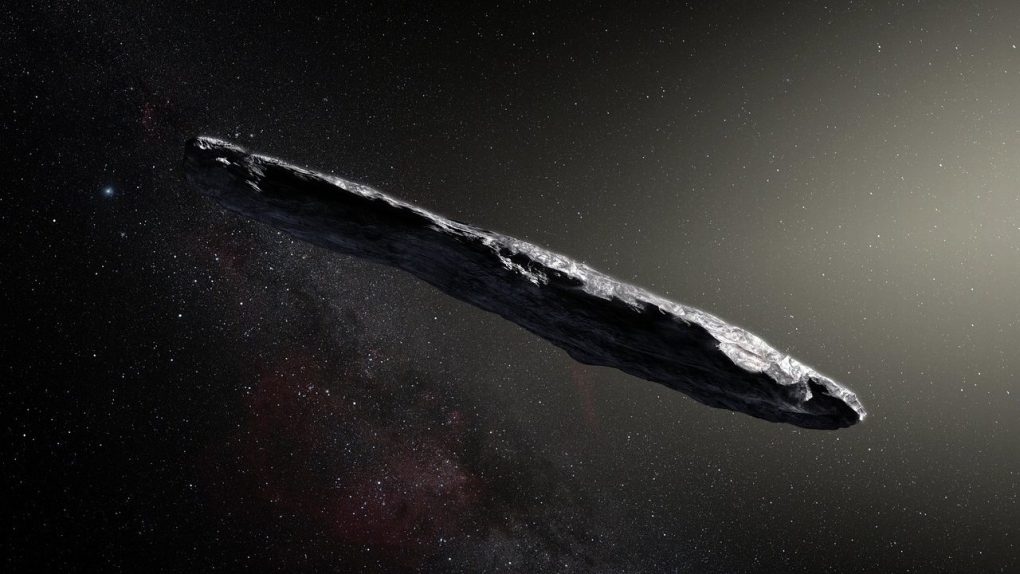Back in mid-November, scientists revealed that a peculiar object whizzed through our Solar System a month prior. It swooped in from such an extreme angle that it couldn’t possibly have been native to our neck of the woods, and the only explanation they could come up with is that the long, cigar-shaped intruder was actually just a really weird-looking asteroid. It was the first recorded example of an interstellar asteroid — that is, one that came from outside our solar system — and its bizarre shape was attributed to its incredibly long, speedy journey from whatever spit it out. Now, some skeptical scientists are wondering if it wasn’t an asteroid at all, but an alien probe.
A group of alien-hunting researchers called the Breakthrough Listen Initiative are now pointing an incredibly powerful radio telescope at the alleged asteroid, named Oumuamua, as it flies back out of our Solar System in the hopes of proving that it’s not actually an asteroid at all.
One of the primary arguments against Oumuamua being a naturally-occurring object is its incredibly odd shape. It’s thought to measure just 80 meters wide but stretches 800 meters in length. That’s far different from any asteroid previously documented by astronomers, but the needle-like form fits well with what many believe would be the best shape for an interstellar probe. If mankind were to design an observational spacecraft to fly into deep space, giving it a long, thin body would minimize its chances of colliding with other objects and debris in space.
If the strange object really was an alien probe, scientists want to know if it’s sending and receiving communications from its handlers, which is where the radio telescope comes in. Over a period of 10 hours on Wednesday, December 13th, the scientists pointed their sensitive electronic ear at the object and listened closely.
Unfortunately, we won’t know right away if the researchers were able to eavesdrop on E.T., since the group is planning to report all of its findings in a researcher paper to be published in the near future. That said, if they did hear something that would definitively prove the object was some type of unmanned alien spacecraft, you wouldn’t think they’d be able to keep it a secret for very long.








